Test Page
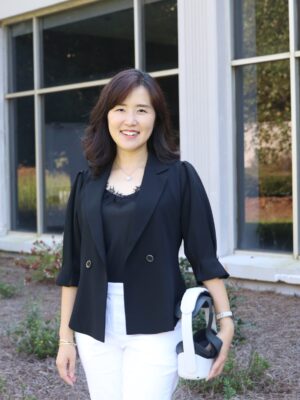
Dr. Sun Joo (Grace) Ahn
Faculty Mentor
Professor
Grady College of Journalism and Mass Communications
https://www.ugavr.com
Available Projects: CACHE researchers investigate the impact of virtual experiences in Diversity, Equity, and Inclusion (DEI) education and training. CACHE researchers have also investigated the effectiveness of virtual reality in communicating environmental risk to encourage pro-environmental attitudes and behaviors. Read the full description of available projects here. Mentoring philosophy available upon request.
Available Projects: CACHE researchers investigate the impact of virtual experiences in Diversity, Equity, and Inclusion (DEI) education and training. CACHE researchers have also investigated the effectiveness of virtual reality in communicating environmental risk to encourage pro-environmental attitudes and behaviors. Read the full description of available projects here. Mentoring philosophy available upon request.
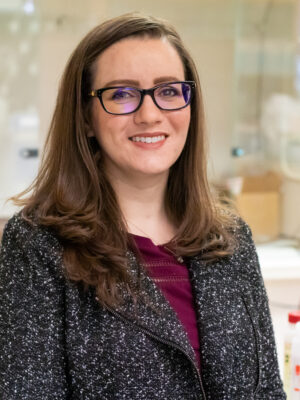
Dr. Elizbeth Brisbois
Faculty Mentor
Associate Professor
School of Chemical, Materials & Biomedical Engineering
https://brisboislab.uga.edu/
Available Projects: The lab is in the new UGA Interdisciplinary STEM research building and is funded by competitive grants including several NIH R01s, DoD, and CDC. Our lab’s interdisciplinary research focused on the interface of materials, chemistry, bioengineering, biology, and medicine. Read the full description of available projects here. Mentoring philosophy available upon request.
Available Projects: The lab is in the new UGA Interdisciplinary STEM research building and is funded by competitive grants including several NIH R01s, DoD, and CDC. Our lab’s interdisciplinary research focused on the interface of materials, chemistry, bioengineering, biology, and medicine. Read the full description of available projects here. Mentoring philosophy available upon request.
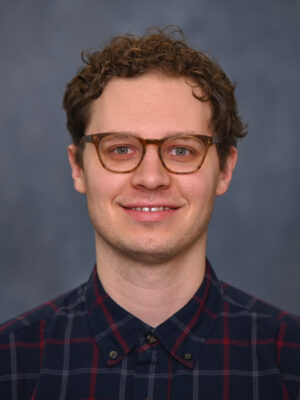
Dr. Andreas Copan
FFIRE Postdoctoral Scholar
School of Environmental, Civil, Agricultural and Mechanical Engineering
Faculty Mentor: Dr. Brandon Rotavera
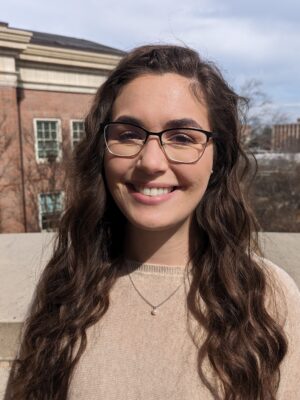
Dr. Stephanann Costello
FFIRE Postdoctoral Scholar
Complex Carbohydrate Research Center & Department of Biochemistry and Molecular Biology
Faculty Mentors: Dr. Arthur Edison and Dr. Breeanna Urbanowicz

Dr. John Heydinger
FFIRE Postdoctoral Scholar
Savannah River Ecology Lab & Warnell School of Forestry and Natural Resoures
Faculty Mentor: Dr. James Beasley
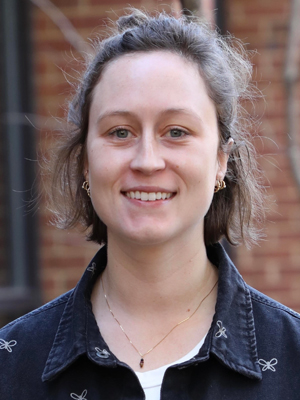
Dr. Emily Richardson
FFIRE Postdoctoral Scholar
Odum School of Ecology
Faculty Mentor: Dr. James Byers
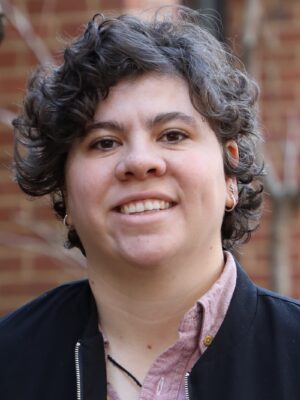
Dr. Irene Sanchez Gonzalez
FFIRE Postdoctoral Scholar
Odum School of Ecology
Faculty Mentor: Dr. Krista Capps
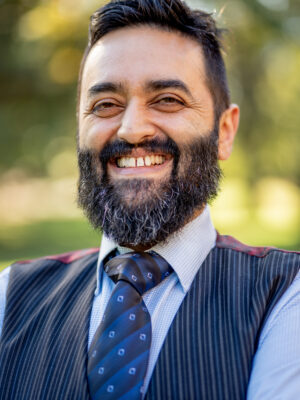
Dr. Justin Bahl
Faculty Mentor
Professor
Department of Infectious Diseases
https://vet.uga.edu/person/justin-bahl/
Available Projects: There are a range of project opportunities for postdocs in the applied molecular epidemiology research group. The overarching goal of this research program is to use pathogen genomic information to learn about unobserved drivers of infectious disease dynamics across biological scales. Current projects include understanding the role of race/ethnicity in epidemic patterns of transmission of HIV, SARS-CoV-2, Influenza and Respiratory Syncitial Virus; characterizing the immune landscape to predict influenza variant fitness; ecological and epidemiological modeling of pathogens with pandemic potential (ie HPAI); developing methods for the rapid identification of transmission clusters; developing mathematical and phylodynamic models to understand impacts of co-circulating pathogens on epidemic dynamics. Trainees will also have the opportunity to contribute to establishing a national agenda for enhanced molecular surveillance of emerging pathogens and pandemic preparedness through the Pathogen Genomics Centers of Excellence and training and funding opportunities through the Centers of Excellence for Influenza Research and Response. Read the full description of available projects here. Mentoring philosophy available upon request.
Available Projects: There are a range of project opportunities for postdocs in the applied molecular epidemiology research group. The overarching goal of this research program is to use pathogen genomic information to learn about unobserved drivers of infectious disease dynamics across biological scales. Current projects include understanding the role of race/ethnicity in epidemic patterns of transmission of HIV, SARS-CoV-2, Influenza and Respiratory Syncitial Virus; characterizing the immune landscape to predict influenza variant fitness; ecological and epidemiological modeling of pathogens with pandemic potential (ie HPAI); developing methods for the rapid identification of transmission clusters; developing mathematical and phylodynamic models to understand impacts of co-circulating pathogens on epidemic dynamics. Trainees will also have the opportunity to contribute to establishing a national agenda for enhanced molecular surveillance of emerging pathogens and pandemic preparedness through the Pathogen Genomics Centers of Excellence and training and funding opportunities through the Centers of Excellence for Influenza Research and Response. Read the full description of available projects here. Mentoring philosophy available upon request.
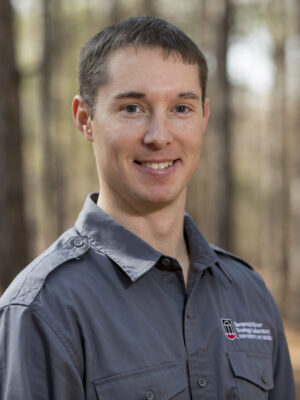
Dr. James Beasley
Faculty Mentor
Terrell Professor of Forestry and Natural Resources
School of Forestry and Natural Resources/Savannah River Ecology Laboratory
http://www.beasleywildlifelab.srel.uga.edu/index.html
Available Projects: 1) Ecology and conservation of African apex carnivores at the interface of protected areas and human-dominated landscapes; 2) Effects of the Chernobyl and Fukushima-Daiichi nuclear accidents on wildlife and development of improved dosimetry for estimating radiation dose to free-ranging wildlife; 3) Ecology and management of invasive wild pigs; 4) Effects of anthropogenic contaminants on wildlife health.
Read the full description of available projects here.
Mentoring philosophy available upon request.
Available Projects: 1) Ecology and conservation of African apex carnivores at the interface of protected areas and human-dominated landscapes; 2) Effects of the Chernobyl and Fukushima-Daiichi nuclear accidents on wildlife and development of improved dosimetry for estimating radiation dose to free-ranging wildlife; 3) Ecology and management of invasive wild pigs; 4) Effects of anthropogenic contaminants on wildlife health.
Read the full description of available projects here.
Mentoring philosophy available upon request.
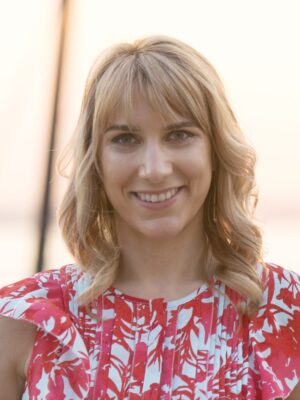
Dr. Holly Bik
Faculty Mentor
Associate Professor
Department of Marine Sciences
https://www.biklab.org/
Available Projects: The Bik Lab currently has NSF funding for a postdoc to contribute to two significant projects focused on marine microbial eukaryotes (nematode worms and other microbial metazoan taxa), including research on bacteria/archaea as part of host-associated microbiome project aims. NSF Project #1: “Do molecular data support high endemism and divergent evolution of Antarctic marine nematodes and their host-associated microbiomes?”, OPP-2132641, National Science Foundation Office of Polar Programs. NSF Project #2, "CAREER: Characterizing the phylogenetic lineages and genomic factors enabling adaptation in free-living marine nematodes", DEB-2144304, awarded by the National Science Foundation CAREER Program. Read the full description of available projects here.
Read Dr. Bik's mentoring philosophy.
Available Projects: The Bik Lab currently has NSF funding for a postdoc to contribute to two significant projects focused on marine microbial eukaryotes (nematode worms and other microbial metazoan taxa), including research on bacteria/archaea as part of host-associated microbiome project aims. NSF Project #1: “Do molecular data support high endemism and divergent evolution of Antarctic marine nematodes and their host-associated microbiomes?”, OPP-2132641, National Science Foundation Office of Polar Programs. NSF Project #2, "CAREER: Characterizing the phylogenetic lineages and genomic factors enabling adaptation in free-living marine nematodes", DEB-2144304, awarded by the National Science Foundation CAREER Program. Read the full description of available projects here.
Read Dr. Bik's mentoring philosophy.
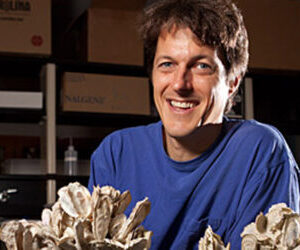
Dr. James Byers
Faculty Mentor
Meigs Distinguished Teaching Professor of Ecology and Lothar Tresp Honors Professor
Odum School of Ecology
https://jebyers.ecology.uga.edu/
Available Projects: 1) Quantifying the Mechanisms that Maintain and Shift Species Boundaries in the Coastal Ocean: Computational and Database Interdisciplinary project. 2) Estuarine Disturbance Ecology: Experiment-focused project. Read the full description of available projects here.
Available Projects: 1) Quantifying the Mechanisms that Maintain and Shift Species Boundaries in the Coastal Ocean: Computational and Database Interdisciplinary project. 2) Estuarine Disturbance Ecology: Experiment-focused project. Read the full description of available projects here.
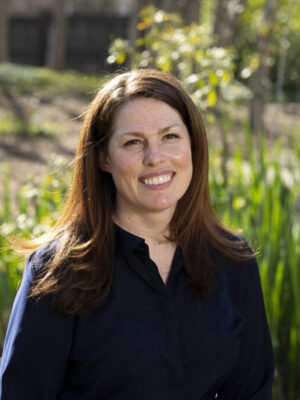
Dr. Krista Capps
Faculty Mentor
Associate Professor
Odum School of Ecology/Savannah River Ecology Lab
http://cappslab.ecology.uga.edu/
Available Projects: The FFIRE postdoctoral researcher will have the opportunity to collaborate with me on existing interdisciplinary projects, but they would also have the flexibility to design their own projects in freshwater community or ecosystem ecology or freshwater conservation ecology. If it is of interest, they would have the opportunity to conduct empirical work in watersheds/ephemeral wetlands in the southeast (most likely around Athens, Atlanta, or in systems on the Savannah River Site in Aiken, South Carolina) or in tropical systems in southern Mexico. I am collaborating with researchers at UGA who are experts in public health, engineering, geographic information systems, and crop and soil science, and am working with researchers in the public and private sector who are experts in environmental justice. I am excited to welcome applicants proposing projects that integrate these fields with aquatic ecology and conservation. I am motivated to add experts from freshwater ecology and from other fields to our research team to expand our understanding of freshwater science.
Available Projects: The FFIRE postdoctoral researcher will have the opportunity to collaborate with me on existing interdisciplinary projects, but they would also have the flexibility to design their own projects in freshwater community or ecosystem ecology or freshwater conservation ecology. If it is of interest, they would have the opportunity to conduct empirical work in watersheds/ephemeral wetlands in the southeast (most likely around Athens, Atlanta, or in systems on the Savannah River Site in Aiken, South Carolina) or in tropical systems in southern Mexico. I am collaborating with researchers at UGA who are experts in public health, engineering, geographic information systems, and crop and soil science, and am working with researchers in the public and private sector who are experts in environmental justice. I am excited to welcome applicants proposing projects that integrate these fields with aquatic ecology and conservation. I am motivated to add experts from freshwater ecology and from other fields to our research team to expand our understanding of freshwater science.
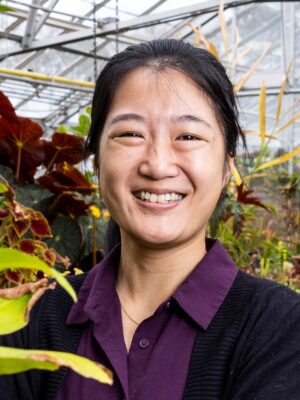
Dr. Anny Chung
Faculty Mentor
Haines Distinguished Assistant Professor
Department of Plant Biology
https://chunglab.franklinresearch.uga.edu/
Available Projects: 1) NSF DEB-2105482 “Collaborative Research: Understanding spatiotemporal dynamics of plant-soil feedbacks: Consequences for shrub-grass interactions in a dryland ecotone” and 2) DOE DE-SC0021386 “Systems analysis of the beneficial associations of sorghum with arbuscular mycorrhizal fungi studied with genetics, genomics, imaging, and microbiomics”. Read the full description of available projects here. Read Dr. Chung's mentoring philosophy here.
Available Projects: 1) NSF DEB-2105482 “Collaborative Research: Understanding spatiotemporal dynamics of plant-soil feedbacks: Consequences for shrub-grass interactions in a dryland ecotone” and 2) DOE DE-SC0021386 “Systems analysis of the beneficial associations of sorghum with arbuscular mycorrhizal fungi studied with genetics, genomics, imaging, and microbiomics”. Read the full description of available projects here. Read Dr. Chung's mentoring philosophy here.
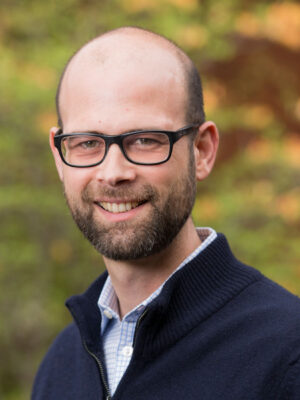
Dr. John Drake
Faculty Mentor
Regents' Professor & UGA Distinguished Research Professor
Odum School of Ecology/Center for the Ecology of Infectious Diseases
http://daphnia.ecology.uga.edu/drakelab/
Available Projects: 1) NSF - Predictive Intelligence for Pandemic Preparedness; 2) NIH - Interactive model for Ebola spillover; 3) An algorithm for forecasting respiratory infections: This project aligns with ongoing activities of the Center for the Ecology of Infectious Diseases Forecasting Working Group. This working group is developing new models and computational workflows for predicting both seasonal and pandemic outbreaks of respiratory infections like influenza and SARS-CoV-2.
Read the full description of available projects here.
Read Dr. Drake's mentoring philosophy.
Available Projects: 1) NSF - Predictive Intelligence for Pandemic Preparedness; 2) NIH - Interactive model for Ebola spillover; 3) An algorithm for forecasting respiratory infections: This project aligns with ongoing activities of the Center for the Ecology of Infectious Diseases Forecasting Working Group. This working group is developing new models and computational workflows for predicting both seasonal and pandemic outbreaks of respiratory infections like influenza and SARS-CoV-2.
Read the full description of available projects here.
Read Dr. Drake's mentoring philosophy.
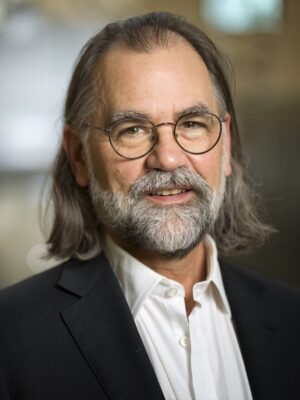
Dr. Arthur Edison
Faculty Mentor
Georgia Research Alliance Eminent Scholar and Professor
Complex Carbohydrate Research Center/Department of Biochemistry and Molecular Biology/Department of Genetics/Institute of Bioinformatics
https://edisonomics.org/
Available Projects: The Edison lab is highly collaborative, and we have several projects. All of these have a theme of metabolomics or metabolism. 1) NIH R35 - Platform for in vivo Metabolism; 2) NSF STC - Center for Chemical Currencies of a Microbial Planet (C-CoMP); 3) NSF - An Engineering Research Center for Cell Manufacturing Technologies (CMaT); 4) NSF - Collective Behavior of Cellular Oscillators.
Available Projects: The Edison lab is highly collaborative, and we have several projects. All of these have a theme of metabolomics or metabolism. 1) NIH R35 - Platform for in vivo Metabolism; 2) NSF STC - Center for Chemical Currencies of a Microbial Planet (C-CoMP); 3) NSF - An Engineering Research Center for Cell Manufacturing Technologies (CMaT); 4) NSF - Collective Behavior of Cellular Oscillators.
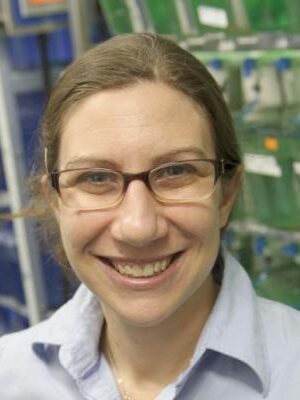
Dr. Mary Goll
Faculty Mentor
Associate Professor
Department of Genetics
https://www.marygoll.com/
Available Projects: Primary funding in my laboratory is through an R35 MIRA grant for established investigators from the National Institutes of General Medicine. This funding provides the flexibility for our laboratory to broadly pursue projects in the area of chromatin regulation in the context of development and disease using zebrafish as a primary model system. Our laboratory currently has strong focal expertise in the area of heterochromatin biology. Current projects in the lab focus on several research questions: 1) we are interested in understanding the mechanisms that drive segregation of eukaryotic genomes into distinct regions of open and compacted chromatin during the window of zygotic genome activation, 2) we are broadly interested in the relationship between repressive chromatin, transposon control, and gene expression during embryonic development, 3) understanding the relationship between DNA methylation loss, DNA damage and human disease (cancer, ICF syndrome) and 4) exploring the capacity for early life exposure to environmental toxicants to disrupt heterochromatin mediated repression. Read Dr. Goll's mentoring philosophy.
Available Projects: Primary funding in my laboratory is through an R35 MIRA grant for established investigators from the National Institutes of General Medicine. This funding provides the flexibility for our laboratory to broadly pursue projects in the area of chromatin regulation in the context of development and disease using zebrafish as a primary model system. Our laboratory currently has strong focal expertise in the area of heterochromatin biology. Current projects in the lab focus on several research questions: 1) we are interested in understanding the mechanisms that drive segregation of eukaryotic genomes into distinct regions of open and compacted chromatin during the window of zygotic genome activation, 2) we are broadly interested in the relationship between repressive chromatin, transposon control, and gene expression during embryonic development, 3) understanding the relationship between DNA methylation loss, DNA damage and human disease (cancer, ICF syndrome) and 4) exploring the capacity for early life exposure to environmental toxicants to disrupt heterochromatin mediated repression. Read Dr. Goll's mentoring philosophy.
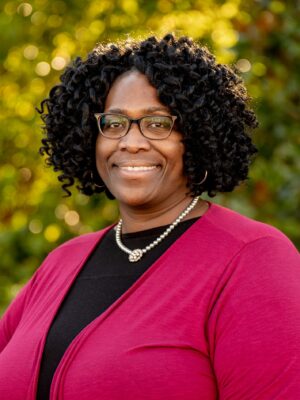
Dr. Cheryl Gomillion
Faculty Mentor
Associate Professor
School of Chemical, Materials, and Biomedical Engineering
https://gomillionlab.com/
Available Projects: Culturing Platforms for Therapeutic Mesenchymal Stromal Cell Expansion. The work of my research group focuses on the following general areas: (1) design and evaluation of biomaterials for therapeutic purposes; (2) application of materials for engineering tissue systems; and (3) advanced engineering strategies for developing in vitro models and culture systems. Central to these areas is an emerging area of research within my group focused on (4) integration of biomedical and engineering education research with a specific focus on evaluating classroom innovations for improving biomedical engineering student learning and exploring factors that facilitate success for diverse graduate students. The ongoing research efforts in my lab are diverse and interdisciplinary, with a number of collaborations being built through our work.
Read the full description of available projects here. Mentoring philosophy available upon request.
Available Projects: Culturing Platforms for Therapeutic Mesenchymal Stromal Cell Expansion. The work of my research group focuses on the following general areas: (1) design and evaluation of biomaterials for therapeutic purposes; (2) application of materials for engineering tissue systems; and (3) advanced engineering strategies for developing in vitro models and culture systems. Central to these areas is an emerging area of research within my group focused on (4) integration of biomedical and engineering education research with a specific focus on evaluating classroom innovations for improving biomedical engineering student learning and exploring factors that facilitate success for diverse graduate students. The ongoing research efforts in my lab are diverse and interdisciplinary, with a number of collaborations being built through our work.
Read the full description of available projects here. Mentoring philosophy available upon request.
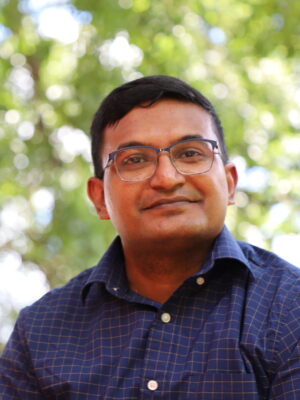
Dr. Mohammad Rifat Haider
Faculty Mentor
Assistant Professor
Department of Health Policy and Management
https://publichealth.uga.edu/faculty-member/mohammad-rifat-haider/
Available Projects: NIH (NIDA) - Trauma-informed, resilience-based telehealth intervention for improving HIV prevention and HCV care for persons who inject drugs in the Deep South. Read the full description of available projects here. Read Dr. Haider’s mentoring philosophy here.
Available Projects: NIH (NIDA) - Trauma-informed, resilience-based telehealth intervention for improving HIV prevention and HCV care for persons who inject drugs in the Deep South. Read the full description of available projects here. Read Dr. Haider’s mentoring philosophy here.
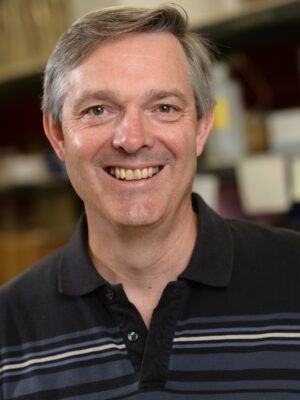
Dr. Robert Haltiwanger
Faculty Mentor
Georgia Research Alliance Eminent Scholar and Professor
Complex Carbohydrate Research Center
https://ccrc.uga.edu/team/robert-haltiwanger/
Available Projects: The Haltiwanger laboratory investigates the structure, biosynthesis, and function of O-linked glycans on several cysteine-rich domains including Epidermal Growth Factor-like (EGF) repeats and Thrombospondin Type 1 Repeats (TSRs). 1) How does addition of O-glucose to EGF repeats affect the structure and function of fibrillin- 1 microfibrils? 2) How do CADASIL mutations affect O-glycans on NOTCH3 EGF repeats?
Read the full description of available projects here.
Available Projects: The Haltiwanger laboratory investigates the structure, biosynthesis, and function of O-linked glycans on several cysteine-rich domains including Epidermal Growth Factor-like (EGF) repeats and Thrombospondin Type 1 Repeats (TSRs). 1) How does addition of O-glucose to EGF repeats affect the structure and function of fibrillin- 1 microfibrils? 2) How do CADASIL mutations affect O-glycans on NOTCH3 EGF repeats?
Read the full description of available projects here.
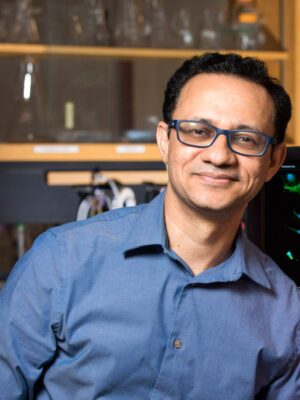
Dr. Hitesh Handa
Faculty Mentor
Associate Professor
School of Chemical, Materials and Biomedical Engineering
https://handalab.uga.edu/
Available Projects: The Handa Lab is in the new UGA Interdisciplinary STEM research building and is funded by competitive grants including several NIH R01s, DoD, and CDC. Our lab’s interdisciplinary research focused on the interface of materials, chemistry, bioengineering, biology, and medicine. Read the full description of available projects here. Mentoring philosophy available upon request.
Available Projects: The Handa Lab is in the new UGA Interdisciplinary STEM research building and is funded by competitive grants including several NIH R01s, DoD, and CDC. Our lab’s interdisciplinary research focused on the interface of materials, chemistry, bioengineering, biology, and medicine. Read the full description of available projects here. Mentoring philosophy available upon request.
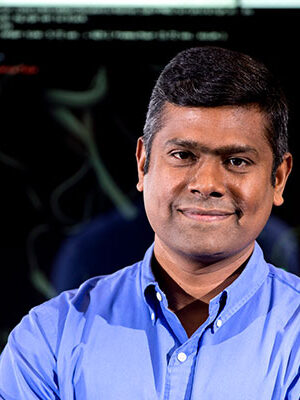
Dr. Natarajan Kannan
Faculty Mentor
Georgia Cancer Coalition Distinguished Scholar and Professor
Department of Biochemistry and Molecular Biology/Institute of Bioinformatics
http://esbg.bmb.uga.edu/
Available Projects: 1) NIGMS R35 - Mapping genome-phenome relationships in large gene families; 2) NCI U01 - Application of AI and data integration tools for protein classification and function prediction; 3) Building a Translational Informatics Network for Personalized Medicine-Based Treatment Strategies for Alzheimer's and Parkinson's Diseases. This new project, developed in collaboration with faculty at the Center for Neurological Disease Research (CNDR) at UGA, focuses on discovering new kinome-based biomarkers for neurological diseases through integrative mining of patient-derived data from the NIH AMP-PD consortium. This project offers the opportunity to train in translational neuroscience by working collaboratively with computational and wet-lab scientists within the UGA CNDR.
Read the full description of available projects here. Read Dr. Kannan's mentoring philosophy.
Available Projects: 1) NIGMS R35 - Mapping genome-phenome relationships in large gene families; 2) NCI U01 - Application of AI and data integration tools for protein classification and function prediction; 3) Building a Translational Informatics Network for Personalized Medicine-Based Treatment Strategies for Alzheimer's and Parkinson's Diseases. This new project, developed in collaboration with faculty at the Center for Neurological Disease Research (CNDR) at UGA, focuses on discovering new kinome-based biomarkers for neurological diseases through integrative mining of patient-derived data from the NIH AMP-PD consortium. This project offers the opportunity to train in translational neuroscience by working collaboratively with computational and wet-lab scientists within the UGA CNDR.
Read the full description of available projects here. Read Dr. Kannan's mentoring philosophy.
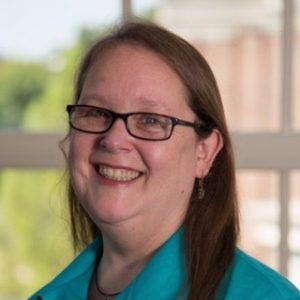
Dr. Jessica Kissinger
Faculty Mentor
Distinguished Research Professor
Department of Genetics/Institute of Bioinformatics
http://mango.ctegd.uga.edu/
Available Projects: Our soon to be NIH funded project will explore polycistronic transcription throughout the lifecycle of Cryptosporidium both in vitro and in organoids. The project involves two interdisciplinary collaborations, one for work on organoids and a second, international collaboration to study translation of polycistronic transcripts. Read the full description of available projects here. Mentoring philosophy available upon request.
Available Projects: Our soon to be NIH funded project will explore polycistronic transcription throughout the lifecycle of Cryptosporidium both in vitro and in organoids. The project involves two interdisciplinary collaborations, one for work on organoids and a second, international collaboration to study translation of polycistronic transcripts. Read the full description of available projects here. Mentoring philosophy available upon request.
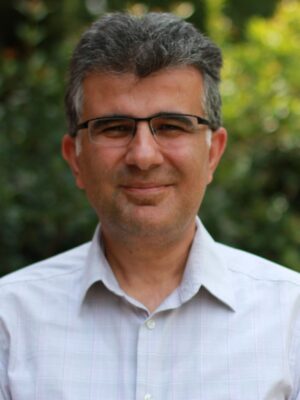
Dr. Mehmet Kurum
Faculty Mentor
Associate Professor
School of Electrical and Computer Engineering
https://impress.engr.uga.edu/
Available Projects: Post-doctoral associate will primarily work in one of the following areas: microwave remote sensing, unmanned vehicle platforms, field data collection, and data analysis for GNSS-R, GNSS-T, and radiometer data. Read the full description of available projects here. Read Dr. Kurum's mentoring philosophy here.
Available Projects: Post-doctoral associate will primarily work in one of the following areas: microwave remote sensing, unmanned vehicle platforms, field data collection, and data analysis for GNSS-R, GNSS-T, and radiometer data. Read the full description of available projects here. Read Dr. Kurum's mentoring philosophy here.
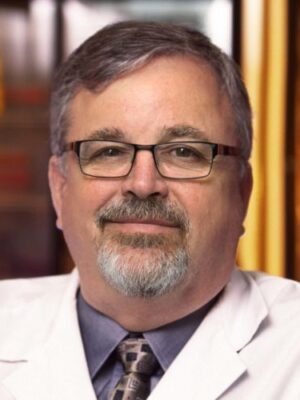
Dr. Dennis Kyle
Faculty Mentor
GRA Eminent Scholar in Antiparasitic Drug Discovery/Professor/Director
Department of Cellular Biology/Department of Infectious Diseases/Center for Tropical and Emerging Global Diseases
https://ctegd.uga.edu/about/directory/dennis-kyle/
Available Projects: 1) “Discovery of host genetic factors associated with susceptibility to infections with brain-eating amoebae” and 2) “Optimizing 2-Amido-pyrazines as Fast-Acting Antimalarials”. Read the full description of available projects here. Read Dr. Kyle's mentoring philosophy here.
Available Projects: 1) “Discovery of host genetic factors associated with susceptibility to infections with brain-eating amoebae” and 2) “Optimizing 2-Amido-pyrazines as Fast-Acting Antimalarials”. Read the full description of available projects here. Read Dr. Kyle's mentoring philosophy here.
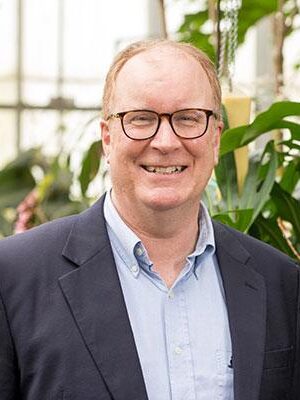
Dr. James Leebens-Mack
Faculty Mentor
Distinguished Research Professor
Department of Plant Biology
https://www.jlmlab.com/
Available Projects: My lab uses comparative genomics analyses to pursue a wide range of questions relating to the gene/c and molecular underpinnings of macroevolutionary innovations such as flowering, the shifts from C3 photosynthesis to CAM, shifts from hermaphroditism to dioecy, and changes pollination syndromes. We have several projects that a postdoc could jump into, but I am also open to launching new research that could be pursued using a comparative genomics toolkit.
Read the full description of available projects here.
Read Dr. Leebens-Mack's mentoring philosophy.
Available Projects: My lab uses comparative genomics analyses to pursue a wide range of questions relating to the gene/c and molecular underpinnings of macroevolutionary innovations such as flowering, the shifts from C3 photosynthesis to CAM, shifts from hermaphroditism to dioecy, and changes pollination syndromes. We have several projects that a postdoc could jump into, but I am also open to launching new research that could be pursued using a comparative genomics toolkit.
Read the full description of available projects here.
Read Dr. Leebens-Mack's mentoring philosophy.
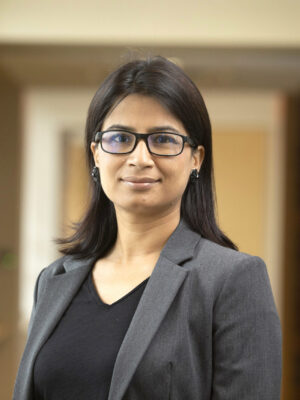
Dr. Janani Rajbhandari Thapa
Faculty Mentor
Associate Professor
Department of Health Policy and Management
https://eerg.publichealth.uga.edu/about/
Available Projects: Supplemental Nutrition Assistance Program (SNAP) and Food Insecurity related Healthcare Costs in the High Obesity Counties in the United States. Project Aims: Evaluate SNAP policy, healthcare infrastructure, and food and built environment that affect child health outcomes related to food and nutrition insecurity.
Read the full description of available projects here.
Mentoring philosophy available upon request.
Available Projects: Supplemental Nutrition Assistance Program (SNAP) and Food Insecurity related Healthcare Costs in the High Obesity Counties in the United States. Project Aims: Evaluate SNAP policy, healthcare infrastructure, and food and built environment that affect child health outcomes related to food and nutrition insecurity.
Read the full description of available projects here.
Mentoring philosophy available upon request.
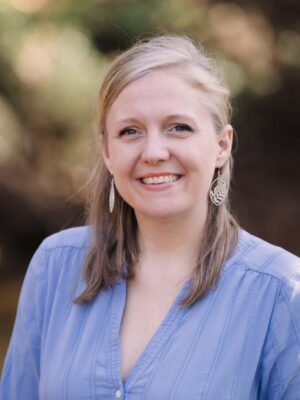
Dr. Rachel Roberts-Galbraith
Faculty Mentor
Assistant Professor
Department of Cellular Biology/Regenerative Bioscience Center/Neuroscience Program
https://robertsgalbraithlab.org/
Available Projects: Regulation of regenerative neurogenesis (funded by NINDS R01)
Read the full description of available projects here.
Read Dr. Roberts-Galbraith's mentoring philosophy.
Available Projects: Regulation of regenerative neurogenesis (funded by NINDS R01)
Read the full description of available projects here.
Read Dr. Roberts-Galbraith's mentoring philosophy.
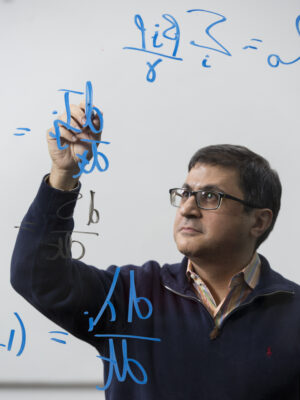
Dr. Pejman Rohani
Faculty Mentor
UGA Athletic Association Professor in Ecology and Infectious Diseases & Regents' Professor
Odum School of Ecology
https://rohanilab.ecology.uga.edu/
Available Projects: 1) NIAID Centers of Excellence for Influenza Research and Response: Center for Influenza Disease and Emergence Research; 2) Computational Methods for Influenza Forecasting; 3) Using Validated Transmission Models to Inform Pertussis Vaccine Development and Policy.
Read the full description of available projects here.
Read Dr. Rohani's mentoring philosophy.
Available Projects: 1) NIAID Centers of Excellence for Influenza Research and Response: Center for Influenza Disease and Emergence Research; 2) Computational Methods for Influenza Forecasting; 3) Using Validated Transmission Models to Inform Pertussis Vaccine Development and Policy.
Read the full description of available projects here.
Read Dr. Rohani's mentoring philosophy.
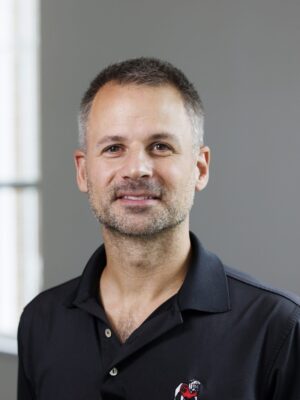
Dr. Brandon Rotavera
Faculty Mentor
Associate Professor
Department of Chemistry & School of Environmental, Civil, Agricultural, and Mechanical Engineering
https://rotavera.uga.edu/
Available Projects: 1) U.S. Department of Energy, Office of Science, Basic Energy Sciences, Computational Chemistry of Biofuel Functional Group Effects for Sustainable Transportation Energy. Includes collaboration opportunity with National Laboratories. Interdisciplinary impact: physical chemistry and computer science/algorithm development. 2) National Science Foundation, Chemical Measurements and Imaging Program, Data Science and Machine Learning for Spectral Analysis to Advance Chemical Sciences. Includes collaboration opportunity with National Laboratories. Interdisciplinary impact: spectroscopy for energy applications + machine learning/data science.
Read the full description of available projects here. Mentoring philosophy available upon request.
Available Projects: 1) U.S. Department of Energy, Office of Science, Basic Energy Sciences, Computational Chemistry of Biofuel Functional Group Effects for Sustainable Transportation Energy. Includes collaboration opportunity with National Laboratories. Interdisciplinary impact: physical chemistry and computer science/algorithm development. 2) National Science Foundation, Chemical Measurements and Imaging Program, Data Science and Machine Learning for Spectral Analysis to Advance Chemical Sciences. Includes collaboration opportunity with National Laboratories. Interdisciplinary impact: spectroscopy for energy applications + machine learning/data science.
Read the full description of available projects here. Mentoring philosophy available upon request.
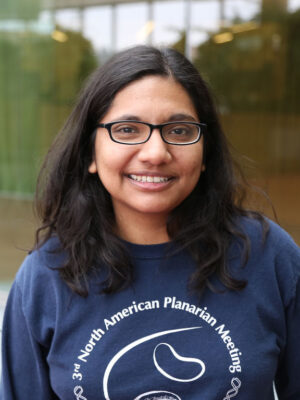
Dr. Tania Rozario
Faculty Mentor
Assistant Professor
Department of Genetics
https://www.rozariolab.org/
Available Projects: 1) Transgenesis in tapeworms; 2) Neuronal control of tapeworm regeneration; 3) Quorum sensing among tapeworms and its effect on stem cells; 4) Segmentation in tapeworms
Read the full description of available projects here.
Read Dr. Rozario's mentoring philosophy.
Available Projects: 1) Transgenesis in tapeworms; 2) Neuronal control of tapeworm regeneration; 3) Quorum sensing among tapeworms and its effect on stem cells; 4) Segmentation in tapeworms
Read the full description of available projects here.
Read Dr. Rozario's mentoring philosophy.
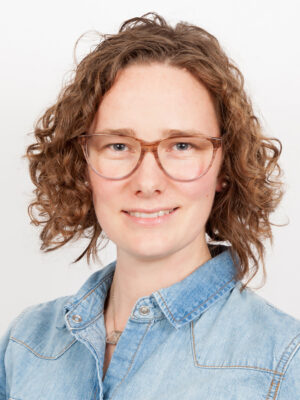
Dr. Shayla Salzman
Faculty Mentor
Assistant Professor
Department of Entomology
https://shaylasalzman.com/
Available Projects: 1) Chemical ecology and multi-modal signaling of host shifts in cycad pollination. 2) Mechanisms and chemical ecology of Magnolia pollination. Read the full description of available projects here. Mentoring philosophy available upon request.
Available Projects: 1) Chemical ecology and multi-modal signaling of host shifts in cycad pollination. 2) Mechanisms and chemical ecology of Magnolia pollination. Read the full description of available projects here. Mentoring philosophy available upon request.
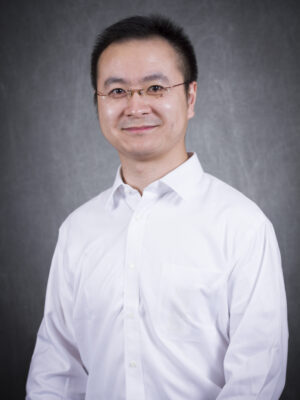
Dr. Kenan Song
Faculty Mentor
Associate Professor
School of Environmental, Civil, Agricultural, and Mechanical Engineering
https://sites.google.com/site/kenansonglab/home
Available Projects: The proposed project aims to advance the field of additive manufacturing, also known as 3D printing, to overcome existing challenges and enable precise processing of a diversity of materials. Read the full description of available projects here. Mentoring philosophy available upon request.
Available Projects: The proposed project aims to advance the field of additive manufacturing, also known as 3D printing, to overcome existing challenges and enable precise processing of a diversity of materials. Read the full description of available projects here. Mentoring philosophy available upon request.
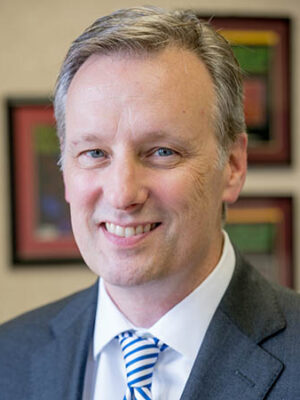
Dr. Steve Stice
Faculty Mentor
DW Brooks Distinguished Professor, GRA Eminent Scholar & Georgia Regents' Entrepreneur
Regenerative Bioscience Center
https://sites.google.com/site/kenansonglab/home
Available Projects: Research conducted at the Stice Laboratory at the University of Georgia (UGA) has illuminated crucial avenues for advancing our understanding of extracellular vesicles and their potential applications in addressing neurodegenerative diseases and stroke. However, to continue pushing the boundaries of scientific knowledge and translate these discoveries into practical therapies, ongoing research funding is vital. Read the full description of available projects here. Mentoring philosophy available upon request.
Available Projects: Research conducted at the Stice Laboratory at the University of Georgia (UGA) has illuminated crucial avenues for advancing our understanding of extracellular vesicles and their potential applications in addressing neurodegenerative diseases and stroke. However, to continue pushing the boundaries of scientific knowledge and translate these discoveries into practical therapies, ongoing research funding is vital. Read the full description of available projects here. Mentoring philosophy available upon request.
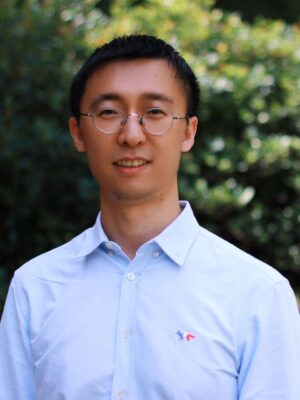
Dr. Hongyue Sun
Faculty Mentor
Associate Professor
School of Environmental, Civil, Agricultural, and Mechanical Engineering
https://sites.google.com/view/hongyuesun/home
Available Projects: 1) Data Analytics for Smart Manufacturing and 2) Ethical Manufacturing. Read the full description of available projects here. Mentoring philosophy available upon request.
Available Projects: 1) Data Analytics for Smart Manufacturing and 2) Ethical Manufacturing. Read the full description of available projects here. Mentoring philosophy available upon request.
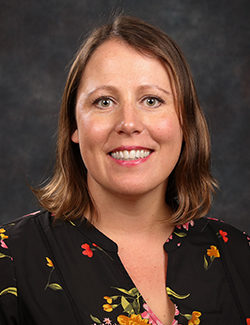
Dr. Breeanna Urbanowicz
Faculty Mentor
Assistant Professor
Complex Carbohydrate Research Center
https://ccrc.uga.edu/team/breeanna-urbanowicz/
Available Projects: 1) DOE - Center for Bioenergy Innovation (CBI). *Includes National Lab and Interdisciplinary Collaborations; 2) DOE - Center for Plant and Microbial Carbohydrates at the University of Georgia Complex Carbohydrate Research Center. *Includes National Lab and Interdisciplinary Collaborations; 3) DOE - Functional characterization of glycosyltransferase in duckweed to enable predictive biology. *Includes National Lab and Interdisciplinary Collaborations; 4) DOE - BioPoplar: A tunable chassis for diversified bioproduct production. *Includes National Lab and Interdisciplinary Collaborations; 5) DOE - Cell-type Specific Pectins in Plant Cell Walls: Structure, Interaction and Function. *Includes National Lab and Interdisciplinary Collaborations
Read the full description of available projects here. Read Dr. Urbanowicz's mentoring philosophy.
Available Projects: 1) DOE - Center for Bioenergy Innovation (CBI). *Includes National Lab and Interdisciplinary Collaborations; 2) DOE - Center for Plant and Microbial Carbohydrates at the University of Georgia Complex Carbohydrate Research Center. *Includes National Lab and Interdisciplinary Collaborations; 3) DOE - Functional characterization of glycosyltransferase in duckweed to enable predictive biology. *Includes National Lab and Interdisciplinary Collaborations; 4) DOE - BioPoplar: A tunable chassis for diversified bioproduct production. *Includes National Lab and Interdisciplinary Collaborations; 5) DOE - Cell-type Specific Pectins in Plant Cell Walls: Structure, Interaction and Function. *Includes National Lab and Interdisciplinary Collaborations
Read the full description of available projects here. Read Dr. Urbanowicz's mentoring philosophy.
